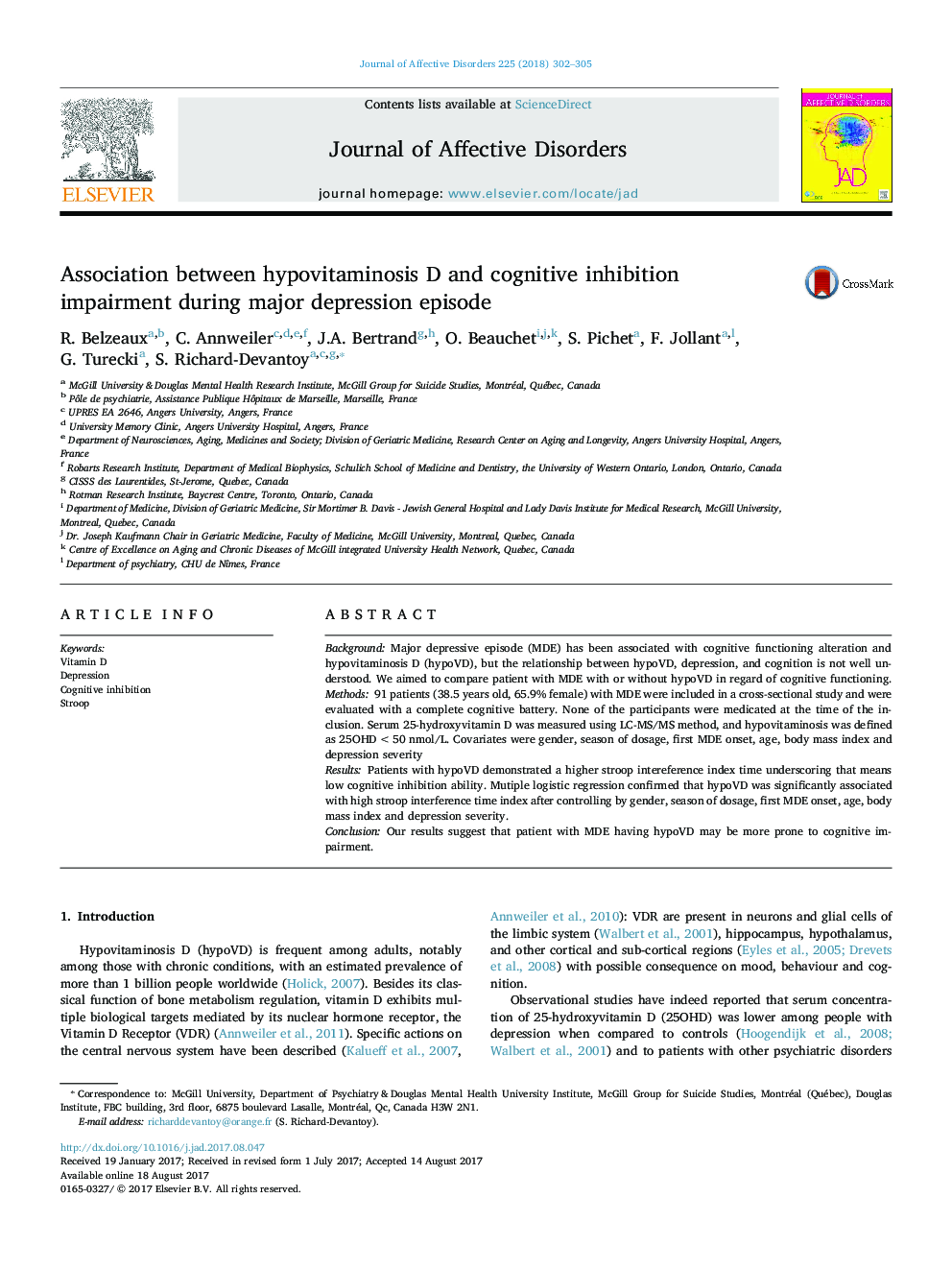| Article ID | Journal | Published Year | Pages | File Type |
|---|---|---|---|---|
| 5721725 | Journal of Affective Disorders | 2018 | 4 Pages |
â¢Significant association between hypovitaminosis D and high stroop interference time index in major depressive episode.â¢Patient with MDE having hypoVD may be more prone to cognitive inhibition impairment.â¢No significant association between hypovitaminosis D and cognitive flexibility, verbal fluency and decision-making in major depressive episode.
BackgroundMajor depressive episode (MDE) has been associated with cognitive functioning alteration and hypovitaminosis D (hypoVD), but the relationship between hypoVD, depression, and cognition is not well understood. We aimed to compare patient with MDE with or without hypoVD in regard of cognitive functioning.Methods91 patients (38.5 years old, 65.9% female) with MDE were included in a cross-sectional study and were evaluated with a complete cognitive battery. None of the participants were medicated at the time of the inclusion. Serum 25-hydroxyvitamin D was measured using LC-MS/MS method, and hypovitaminosis was defined as 25OHD < 50Â nmol/L. Covariates were gender, season of dosage, first MDE onset, age, body mass index and depression severityResultsPatients with hypoVD demonstrated a higher stroop intereference index time underscoring that means low cognitive inhibition ability. Mutiple logistic regression confirmed that hypoVD was significantly associated with high stroop interference time index after controlling by gender, season of dosage, first MDE onset, age, body mass index and depression severity.ConclusionOur results suggest that patient with MDE having hypoVD may be more prone to cognitive impairment.
